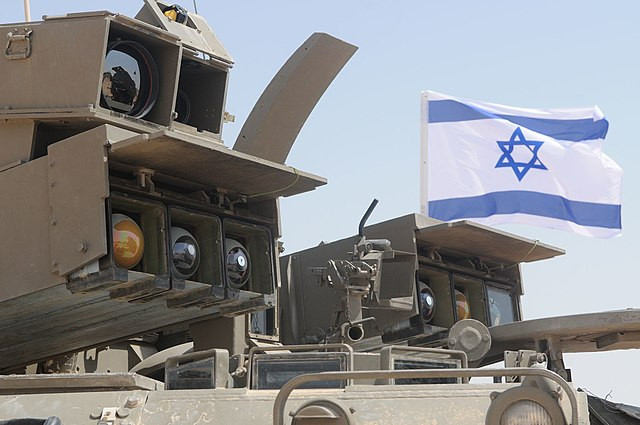Israel's military launched a significant wave of airstrikes across Syria early Tuesday, targeting key military infrastructure and weaponry while denying claims that its forces had advanced within 25 kilometers of Damascus. The strikes come amid escalating regional tensions, with multiple countries condemning Israel's actions as a violation of international law.
According to Israeli security sources, more than 300 airstrikes were carried out, primarily focusing on military assets in southern Syria and around Damascus. Targets included air defense systems, missile depots, and Syrian naval vessels. "Dozens of Syrian naval ships carrying sea-to-sea missiles were destroyed," an Israeli military statement said, referencing an operation in the port of Latakia.
Reports from the Britain-based Syrian Observatory for Human Rights claimed Israeli troops were advancing beyond the buffer zone established after the 1973 Mideast war. However, Lt. Col. Nadav Shoshani, an Israeli military spokesperson, dismissed these allegations. "The reports circulating in the media about the alleged advancement of Israeli tanks toward Damascus are false," he stated.
Photographs and videos circulating online showed destroyed missile launchers and aircraft, underscoring the intensity of the strikes. Local Syrian media confirmed that air bases in Qamishli, Shinshar, and Aqraba were severely damaged. Associated Press reporters in Damascus reported hearing heavy bombardments overnight.
The strikes followed the fall of President Bashar Assad's regime, as insurgent forces led by Hayat Tahrir al-Sham (HTS) overthrew Assad's government, ending decades of family rule. Israeli officials have emphasized that their operations aim to prevent advanced weaponry from falling into the hands of extremist groups amid the power vacuum.
The Israeli government defended its actions as necessary for national security. In a letter to the United Nations Security Council, Israeli Ambassador Danny Danon described the strikes as "limited and temporary measures" to address immediate threats. "Israel does not intervene in the internal Syrian conflict," Danon wrote, emphasizing the country's commitment to protecting its borders and civilians.
Despite these assurances, several nations, including Egypt, Jordan, and Saudi Arabia, condemned Israel's actions. Turkey, a key backer of Syrian opposition groups, accused Israel of exploiting Syria's instability. A Turkish Foreign Ministry claimed this is a display of a mentality of an occupier.
The United Nations also weighed in, with spokesperson Stephane Dujarric calling the incursion a violation of the 1974 disengagement agreement. Dujarric urged both Israel and Syria to uphold their commitments to maintain peace and stability in the region.
Complicating the narrative, Arab media reports suggested Israeli tanks were spotted within 20 kilometers of Damascus. The Israeli Defense Forces (IDF) firmly denied these claims, reiterating that all troops remain within the buffer zone. "IDF forces are present inside the buffer zone and at defensive points close to the border in order to protect the Israeli border," Col. Avichay Adraee stated.
Domestically, Israeli media framed the strikes as part of a broader effort to degrade Syria's military capabilities. "Dozens upon dozens of targets, including arms depots, have been hit in waves of attacks to prevent them from falling into hostile hands," wrote Yossi Yehoshua, a military correspondent for Yediot Ahronot.




